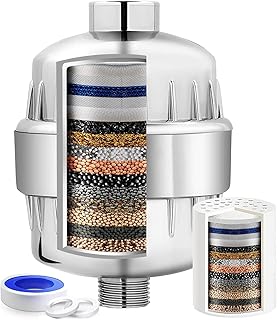Personal hygiene is a crucial aspect of daily life, but there are several myths surrounding common practices that need to be debunked. From showering habits to dental care, understanding the truth behind these beliefs is essential for maintaining good hygiene.
One prevalent myth is the belief that peeing in the shower is harmless. While there is no concrete evidence of harm from this practice, health experts caution against it due to the potential risk of bacterial infections, especially if there are open cuts on the skin. Maintaining proper hygiene etiquette, especially in shared spaces, is essential to prevent any health risks.
Another misconception revolves around washing legs in the shower. While some argue that soapy water running down can clean the legs, dermatologists emphasize the importance of washing legs, particularly if visibly dirty. However, individuals with sensitive skin may need to limit soap usage to prevent skin dryness.
Brushing teeth in the shower is another debated topic. While it may seem like a time-saving hack, experts advise against it due to the moist environment that can promote bacterial growth. Proper timing and consideration for hygiene practices are crucial to avoid potential health issues.
Contrary to popular belief, daily bathing is not always necessary. Celebrities like Ashton Kutcher and Mila Kunis sparked a debate by revealing their infrequent bathing habits. While daily showers can dry out the skin and disrupt natural flora, experts suggest that showering several times a week is generally adequate for most individuals.
Using Q-tips to clean ears is a common practice, but it can be harmful. The ear canal is self-cleaning, and inserting objects like Q-tips can lead to injuries and infections. Experts recommend avoiding this practice and letting the ears clean themselves naturally.
Another hygiene myth is the belief that douching can clean the vagina. In reality, the vagina is self-cleaning, and douching can disrupt the natural balance of bacteria and pH levels, leading to various infections and complications. Most healthcare professionals do not recommend douching due to its potential risks.
When it comes to handwashing, using hot water is not necessary for effective cleaning. Warm water, combined with proper soaping and thorough washing, is sufficient to remove dirt and bacteria. The duration of handwashing, at least 20 seconds, is more critical than water temperature.
Lastly, the “5-second rule” for food dropped on the floor is a common belief, but it may not hold true. Bacteria can quickly contaminate food upon contact with surfaces, posing health risks. Proper food handling and hygiene practices are essential to prevent foodborne illnesses.
Understanding these hygiene myths and the expert insights provided can help individuals make informed decisions about their daily hygiene practices. By debunking these misconceptions, people can prioritize effective and safe hygiene habits for overall well-being.
📰 Related Articles
- Why Bathroom Cleanliness Matters in Relationships: Female Hygiene Insights
- Ultrasound Revolutionizing Outpatient Cirrhosis Care: Expert Insights
- TechRadar’s Top PC Cases 2025: Expert Picks and Insights
- Study Reveals Factors Impacting Adolescent Menstrual Hygiene Practices
- Study Reveals Disparities in Menstrual Hygiene Practices in Nepal






